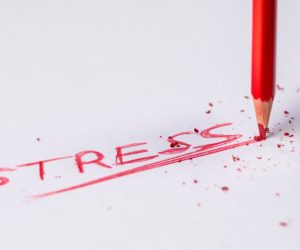It’s now just over a year that we’ve been living through the coronavirus pandemic; the…
Stress and Mental Health: An Introduction
1.
Stress and Mental Health: An Introduction
2.
On Burnout
It’s no secret that as we push towards our career goals, some of us spend far too much time focused on our work and not enough time focused on ourselves.
Millenials and job burnout
Alarmingly, in the last few decades, work related stress has become so insidious that without help, can lead to serious illness and even death. This is especially true for those who are in the beginning of their careers, trying to make a name for themselves and prove to their superiors that they are worth this promotion or that corner office.
What are the symptoms and effects of stress and burnout?
Among the many symptoms of burnout, the most prevalent and subtle are the ones we deal with every day and associate with regular work-related stress. According to Psychology Today, the telltale symptoms of burnout syndrome are:
- Chronic fatigue: constantly feeling like you have no energy.
- Insomnia: not being able to fall asleep, or waking up many times in the night, no matter how tired you are.
- Forgetfulness and inability to concentrate: A general sense of not being able to focus and forgetting tasks.
- Physical symptoms and increased illness: anything from chest pains to digestive issues, and since your body and mind are so tired, you find yourself catching colds more often and staying sick longer.
- Psychological symptoms: these generally begin with anxiety and turn into increased depressive tendencies, irritability, and full on anger.
What causes stress?
Let us back track for a moment to the most common causes of job burnout and stress, some of which many of us deal with on a daily basis without even thinking twice about it. According to a Gallup study, the 5 main causes for burnout syndrome are as follows:
- Being treated unfairly: due to bias, favoritism, and mistrust, among other reasons.
- Unmanageable workloads: high performance work calls for impossible workloads.
- Unclear role descriptions: not knowing exactly what is expected from an employee.
- Lack of managerial communication and support: many people feel like they are not being properly informed and/or supported by their managers.
- Unrealistic deadlines: impossible workloads with even more impossible turnaround times.
How to reduce stress at work?
There are many ways to relieve stress in modern workplace. One CNBC report offers suggestions of managing stress at work by learning your strengths, understanding your weaknesses, communicating and making sure you have group of supportive colleagues to go to for help when needed, and finding the right managerial support. As you can see, already easy options are great to help us dealing with stress.
Many articles on stress management strategies floating around these days tend to focus on these things to reduce work stress, as well as incorporating relaxation techniques like regular exercise and mindfulness to your daily routine. But, we thought we would take a slightly different approach.
In this series, focused on health and stress management, we’ve delved into the ways in which we have found e-mail and business travel to be significant factors in the tipping point from good stress to burnout leading to sick leave.
Join us in the comings weeks as we look further into how email and business travel truly affect us as workers in the modern era, and how you and/or your company can make use of our telephonic services to help lessen those burdens.





